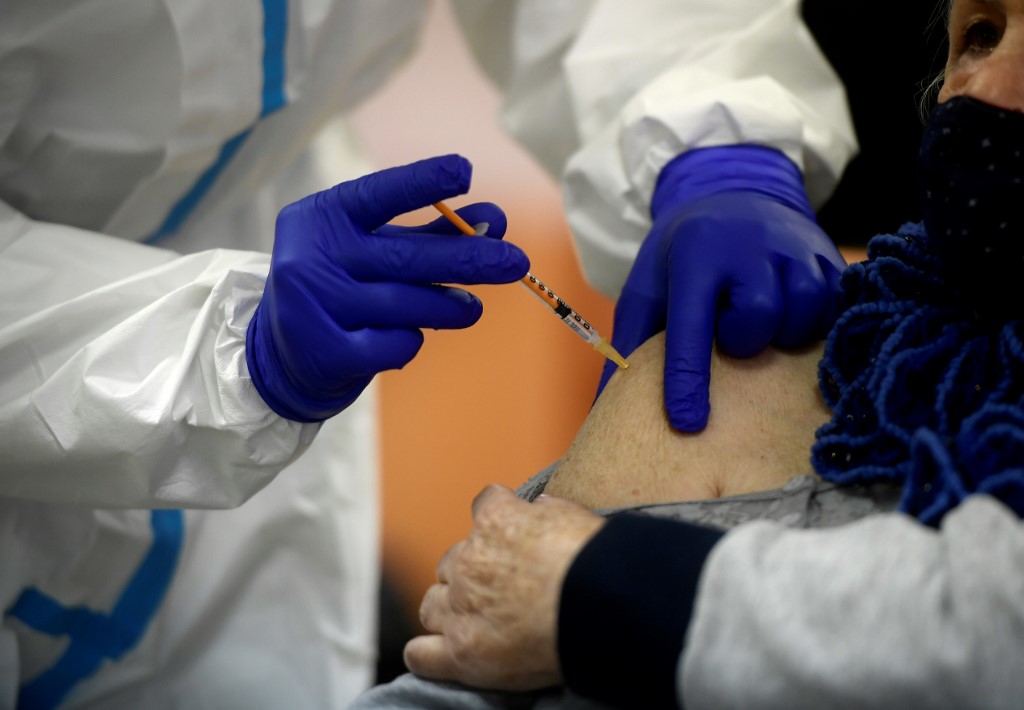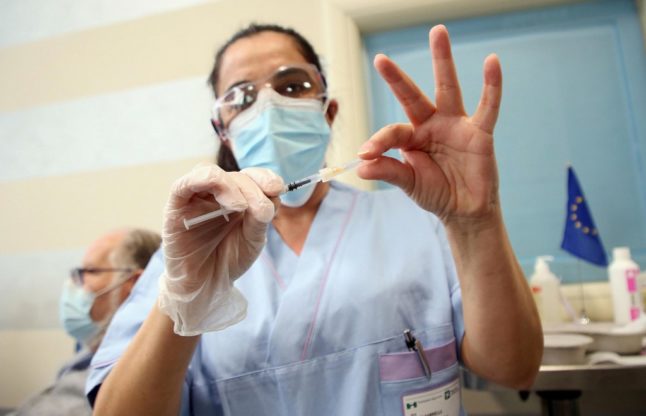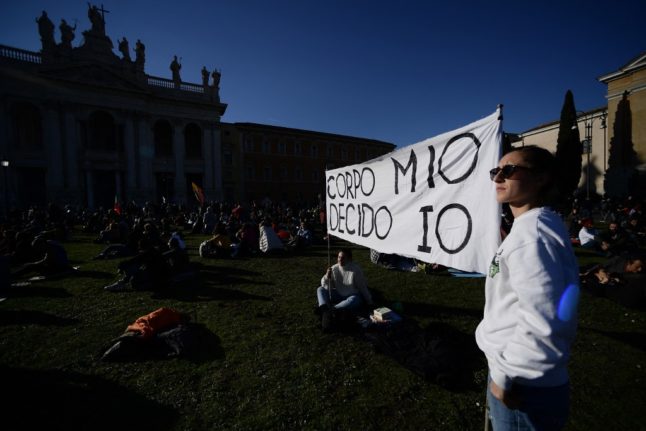What rights non-Italian residents in Italy have when it comes to getting vaccinated for Covid-19 has been a big question among readers of The Local.
People are anxious to know whether distinctions will be made between those registered with Italy’s national health service (SSN) and those access healthcare via the S1 system, or have private health insurance.
Here’s what we know so far.
Who is entitled to be vaccinated in Italy?
Vaccination is expected to be made available for free to all residents of Italy, including those who are not registered with the Italian national health service (SSN), as is the case for all other mandatory or recommended vaccines.
Health Undersecretary Sandra Zampa told Italian media on January 27th that, in order to achieve “herd immunity”, the country needs to vaccinate 70 percent of “Italian citizens and foreigners who live in our country, and who have the same right to protection.”
The Italian Medicines Agency FAQ says that “everyone present in the Italian territory, residents, with or without a permesso di soggiorno (residence permit)” can be vaccinated.
CHARTS: How many people has Italy vaccinated so far?

Photo: AFP
Some regions, including Lazio and Abruzzo, have confirmed that members of the public will be allowed to register via their online booking systems using just a codice fiscale (tax code), without having to enter details of a tessera sanitaria (national health service card).
And it is not possible to get vaccinated privately in Italy.
The Health Ministry has stressed that Covid-19 vaccines should be free for all residents in Italy, and it does not currently allow any private facilities to offer them on a paid basis.
When can I get the vaccine?
The vaccine is not yet available to the general public at the time of writing.
The large majority of those vaccinated in Italy so far are health workers and other key workers, as well as over-80s.
But after hold-ups in the supply chain, Italy is still in the early stages of its vaccine rollout.
READ ALSO: How and when can you get a Covid-19 vaccine in Italy?
So far, a registration procedure for people further down the list has yet to be confirmed.
More details are expected to be given in the coming weeks.
The Italian government is working on a national vaccination platform where the public can register for a jab online and/or via an app, but it is not yet operational. Meanwhile some regions are launching their own systems for booking appointments digitally.
Ultimately Italy plans to offer vaccination to the general public on a walk-in basis at pop-up kiosks in town centres around the country, but this won’t be possible until vaccines that don’t require specialised storage facilities are approved for use.



 Please whitelist us to continue reading.
Please whitelist us to continue reading.
I just went to check at the Italian Medicines Agency website and it seems that it is more complicated than this article suggests.
Here’s the optimistic text that The Local refers to:
“According to the priority scheme defined in the Vaccination Plan, all people will be vaccinated who are present on the Italian territory, residents with or without a residence permit pursuant to Article 35 of Consolidated Law on Immigration.”
But here’s the text that follows, which indicates that a tessera sanitaria and other documents are required:
“A valid identity document and health card (tessera sanitaria) are required. It may be useful to show any health documentation helping the vaccinating healthcare professional to assess the person’s physical condition.
9. Which documents are required for socially-vulnerable (Italian and foreign) people to receive the vaccine?
Based on Article 32 of the Italian Constitution and pursuant to the provisions of Article 35 of the Consolidated Law on Immigration, the required documents comprise any document (including expired ones) stating the identity of the person receiving the vaccine, the health card (tessera sanitaria), the European Health Insurance Card, the STP code (straniero temporaneamente presente – Temporarily present foreign person) and the ENI code (Europeo non iscritto – Non registered European citizen).”
Here is the link
https://www.aifa.gov.it/en/domande-e-risposte-su-vaccini-covid-19
Best wishes,
Karen Bermann